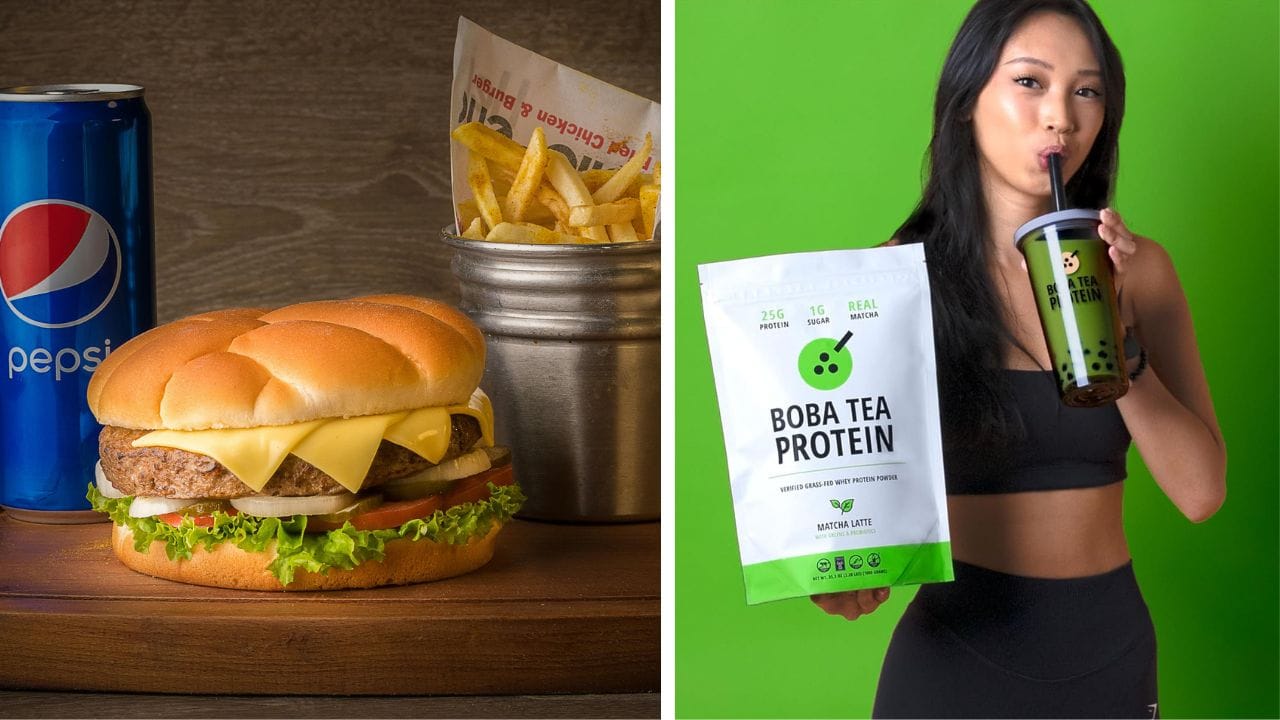Is Boba Tea Protein a Viable Meal Replacement?
It's crucial to use Boba Tea Protein wisely, integrating it into your diet as part of a balanced meal plan rather than relying on it exclusively.

Boba tea, also known as bubble tea, has taken the world by storm with its unique combination of sweet tea, creamy milk, and chewy tapioca pearls. Recently, a new variation has emerged on the market: Boba Tea Protein. This innovative drink promises not only the delightful taste and fun experience of traditional boba but also a boost of protein. In this article, we'll explore whether Boba Tea Protein can be considered a legitimate meal replacement.
Key Takeaways:
- Nutritional Content: Understand the nutritional makeup of Boba Tea Protein.
- Comparison with Traditional Meal Replacements: How does it stack up against other meal replacement options?
- Suitability for Dietary Needs: Is Boba Tea Protein appropriate for your dietary goals?
What is Boba Tea Protein?
Boba Tea Protein is a newer version of the traditional boba tea, infused with protein to provide a more nutritious beverage option. Typically, this protein comes from whey or plant-based sources, making it appealing to both vegetarians and non-vegetarians. The idea is to offer a drink that satisfies not only your taste buds but also contributes to your daily protein intake.
Nutritional Profile of Boba Tea Protein
Understanding the nutritional content is crucial when considering any food or drink as a meal replacement. Boba Tea Protein generally contains protein, carbohydrates, fats, and other essential nutrients, but the exact amounts can vary based on the brand and preparation method. It's important to read the nutritional label to ensure that it meets your dietary needs.
How Does Boba Tea Protein Compare to Traditional Meal Replacements?
Meal replacements are designed to provide the nutrition of a full meal in a convenient form. They typically contain a balanced mix of macronutrients and micronutrients. Boba Tea Protein, while rich in protein, might not always offer a complete nutritional profile, such as adequate levels of vitamins, minerals, and fiber, compared to standard meal replacements.
Macronutrient Balance
For a drink to qualify as a meal replacement, it should have a balanced amount of proteins, carbs, and fats. Boba Tea Protein is high in protein but often lacks sufficient other macronutrients. This imbalance might not sustain the same level of satiety and energy as a traditional meal replacement shake or bar would.
Flavor and Satiety
One of the appealing aspects of Boba Tea Protein is its flavor. Traditional meal replacements sometimes lack the appealing taste and texture that Boba Tea Protein offers. However, flavor should not be the sole factor in determining its effectiveness as a meal replacement. Satiety, or the feeling of being full, is also crucial, and protein is key in achieving this feeling.
Texture and Enjoyment
The unique texture of boba pearls can make consuming Boba Tea Protein a more enjoyable experience than other meal replacements. This enjoyment factor can play a significant role in the sustainability of using it as a meal replacement, especially for those who struggle with the monotony of traditional shakes.
Suitability for Weight Management
When it comes to weight loss or management, calorie control is key. Boba Tea Protein can be calorie-dense, especially if additional sugars are involved. It's essential to consider the total calorie intake from Boba Tea Protein when evaluating its suitability as a meal replacement in a weight management plan.
Protein Quality and Muscle Maintenance
The quality of protein used in Boba Tea Protein is vital for muscle repair and growth. Whey protein, commonly used in these drinks, is a complete protein, meaning it contains all essential amino acids. However, the protein content needs to be balanced with other nutrients to support overall health.
Dietary Restrictions and Allergies
Boba Tea Protein may not be suitable for everyone, especially those with dietary restrictions or allergies. For instance, individuals who are lactose intolerant or allergic to dairy may need to avoid versions made with whey protein. Plant-based options are available, but it's important to check for other potential allergens.
Vegan and Vegetarian Considerations
For vegans and vegetarians, plant-based Boba Tea Protein can be a good option. However, checking the source and quality of the plant protein is crucial to ensure that it provides all necessary amino acids.
Cost-Effectiveness
Comparing the cost of Boba Tea Protein with traditional meal replacements is another factor to consider. Boba Tea Protein can be more expensive, especially if consumed regularly. Budget-conscious consumers might find traditional meal replacements to be more economical in the long run.
Convenience Factor
The convenience of Boba Tea Protein is undeniable. It's easy to prepare and can be consumed on the go, making it an attractive option for busy individuals. However, this convenience should not overshadow the need for a balanced diet.
Summary
Boba Tea Protein offers a delightful and nutritious alternative to traditional boba tea, with the added benefit of protein. While it can contribute to protein intake and may satisfy temporary hunger, it does not fully meet the criteria for a balanced meal replacement due to potential gaps in nutritional content and macronutrient balance.
While Boba Tea Protein can be a valuable addition to your health routine, it's most effective as a dietary supplement or an occasional meal replacement rather than a daily staple. If you're interested in incorporating it into your regimen, click the button below to explore the Boba Tea Protein products we've selected for you!

